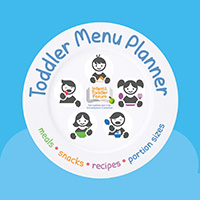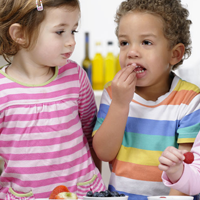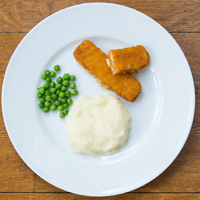
Use our Toddler Meal planning tool to ensure your 1-4 years old receives a balanced diet every day.
Find out more >
Use our toddler food tracker to check that your 1-4 year olds are getting a good balance of foods and activity
Find out more >
This educational programme for frontline professionals contains a range of practical resources on infant feeding.
Find out more >
Guidance & Tips for Parents
- Constipation can show itself in different ways. Your toddler may be:
- having no bowel movement for three or more days
- passing lots of small hard stools
- holding on to stools:
– appearing to be pushing with signs such as her or her face becoming red, when in fact holding on to stools
– using avoidance techniques such as dancing about or hiding
– soiling – loose stools that leak into pants, pyjamas and bedclothes. This happens when the bowel is full.
- Make sure your toddler is drinking enough fluid – six to eight drinks a day. Always give a drink with each meal and at least one in between meals or with a snack. Your toddler may need more fluid in hot weather and if he or she is taking a laxative.
- Water is the best drink between meals. You can give water or diluted fruit juices with meals. Limit milk to three small drinks per day – about 120mls or 4oz.
- Try to eat together as a family. Give your toddler small regular meals and snacks. Serve a variety of foods and concentrate on quality rather than quantity. Persevere with fruits, vegetables and cereals.
- Encourage your toddler to be physically active, to play outside, swim, walk, and join in team games.
- A consistent routine will help your toddler develop regular toilet habits. For example, sitting on the potty or toilet for a few minutes after meals. Hand washing afterwards can be fun!
- Listen and watch for signs that your toddler is ready to begin potty/toilet training. Take your time, don’t rush it.
- Give praise and positive encouragement. Minimise fuss over ‘accidents’
- Make sure your toddler can sit on the toilet, supported (using a child seat or foot stool for example) so that he or she feels safe.
- If these measures do not work your healthcare professional may suggest seeking medical advice.


